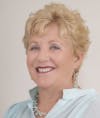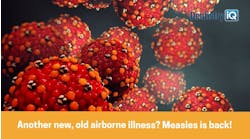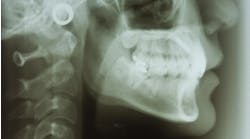By Heather O. Mapp, RDH, MEd
Ah, you have finally made it to your finalyear in dental hygiene school, and you know the end is in sight. But now you realize just how much there is to do before you graduate! How is it possible that you will complete your clinic requirements, study for (and pass!) all your remaining course work, find a patient for your clinical board, put together a resume, set up interviews for employment, and, oh, yes, study for the national board?
Probably the biggest stressor in your dental hygiene education is preparing for the one test that will determine whether or not you get licensed to practice dental hygiene. Nothing to it? Get real!
If you are like all other dental hygiene students, you are overwhelmed with the thoughts of preparing for “THE BOARD.” Where to start? What to study? What not to study? What are the specs of the exam?
The first thing that you need to do when faced with all of these questions is to stop, take a deep breath, and come up with a plan.
Before you start studying
There are certain things that you will need to do before you start studying for the board. Be familiar with the information found on the ADA’s website. Print the entire “Candidate Guide” and be familiar with everything in it! Periodically, go back to the guide to see if there have been any changes made before you actually sit for the exam.
In 2017, there were several changes in the guide that affected the exam. These included the Testing Schedule and Types of Questions. Many students were unaware of the changes because they were not listed in the guide when they first read it. Because of the new testing schedule, many students were lost when they sat for the exam, not realizing that it had been changed.
And, of course, studying
After you have completed your test application and have scheduled a test date, you will need to start preparations to study for the exam.
As a student in an accredited dental hygiene program, your instructors have provided you with the information you need to pass the board. But, you have also received much more information than you will need to study. There is no possible way that you will be able to study all your text books, old tests, and class notes before this exam. So, how do you know what to study? How much time should you study for each topic? How many questions are there in each subject? How are the questions worded? How is the test graded? These are all great questions!
Benefits of review course
One of the best ways to answer these questions and to organize your study is to attend a national board review course. These seminars are provided to help students focus on the information that has a high probability of appearing on the exam.
Hopefully, the course will differentiate between information that is “nice to know” from the information that you “need to know.” There are a number of review courses available to students, and it is important to do “comparison shopping” to determine the one that is best for you. I have listed some items for you to consider when choosing a review course:
- How long has the review course been offered? Does it have a “track record” with testimonials from previous attendees?
- What are the qualifications of the presenters? Do they all have advanced education credentials? Have they presented a national board review in the past? Are they recognized for their expertise in subject matter, as well as the ability to keep students “entertained” and focused?
- Does the review course provide information on the “pass rate” of students who have previously attended the seminar?
- How many presenters will present the information? It is difficult for a few presenters to adequately cover all the information on the board.
- Will you receive a book to study after the exam? Does it contain the speakers’ notes? Practice questions? Review of all “basic” information included in the case studies?
- Does the course offer a computerized “mock board” similar to the national board? Keep in mind, that memorizing questions from a large test base isn’t the same thing as applying the knowledge you’ve acquired when taking a practice exam.
- Is there a guarantee offered if you attend the seminar and don’t pass the board?
- Will there be quality A/V equipment that allows you to clearly see clinical slides and to hear the presentations that are given?
- Will you receive food during the seminar? Course extras? Door prizes? Fun?
Of course, budget considerations are always a concern for students. You want to get the “best bang for your buck.” Consider what you will be receiving if you attend a review course. Do you really need to spend the time and money attending one of these seminars?
Keep in mind that if a student does not pass the national board the first time it is taken, the student will have to wait 90 days before retaking the exam. How much income will be lost if the exam is not passed the first time? How much does it cost to retake the exam? How much stress is there when studying for the exam a second or third time?
Keeping this in mind, make sure you make the right choice when preparing for the exam. You have the ability and knowledge to pass this test! You wouldn’t have made it through hygiene school if you didn’t. You will be successful on the national board if you prepare adequately, study wisely, and stay calm.
Receiving that magical email from the ADA saying that you have passed the national board will be one of the best moments in your life. And when that has happened, I’d like to be the first to welcome you the wonderful profession of dental hygiene!








